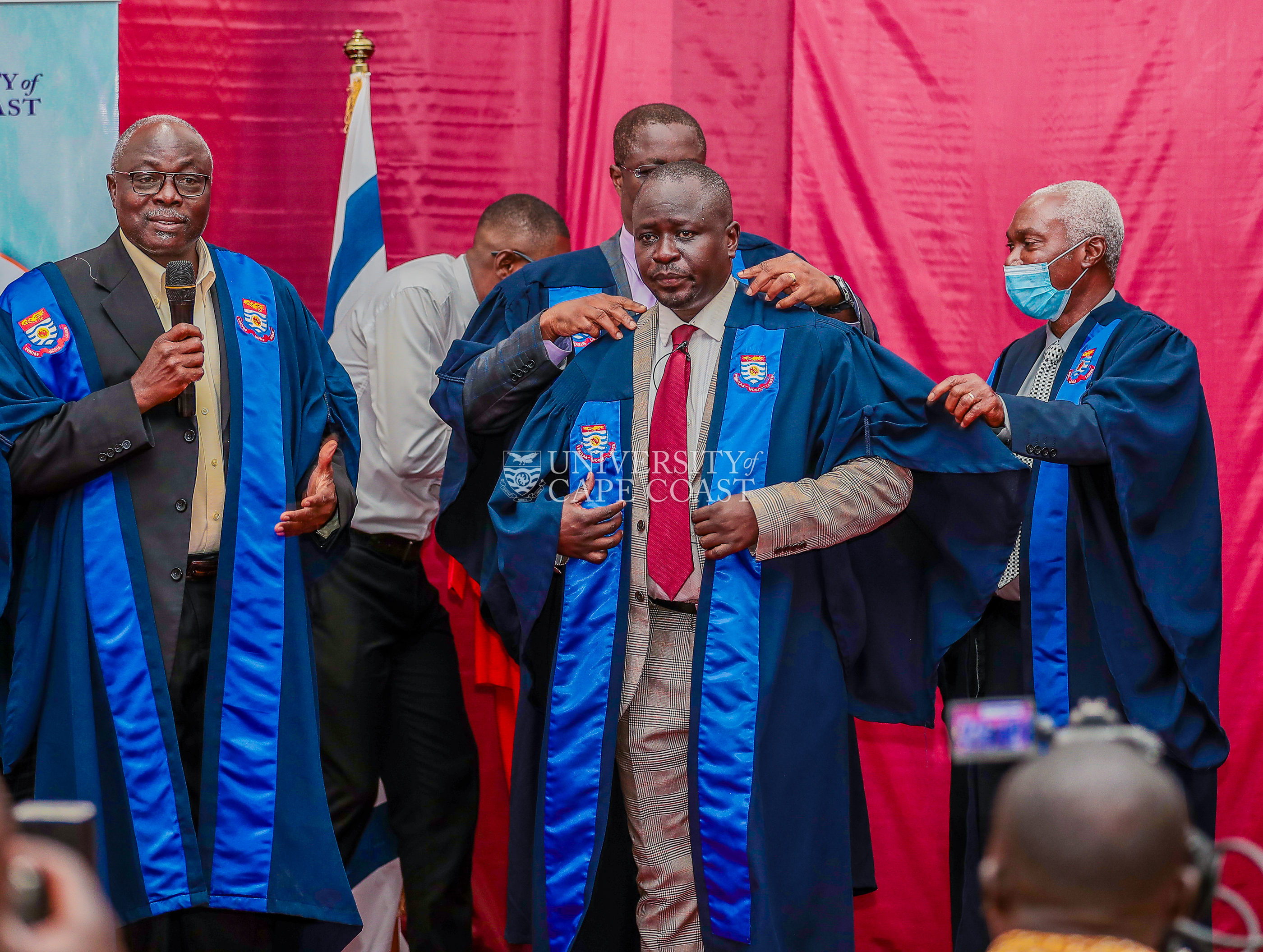Government Statistician, Prof. Samuel Kobina Annim, is advocating the renewal of tenures of public office holders based on productivity in office.
He is, therefore, calling on Parliament to consider setting up what he described as a ‘Public Productivity Committee’ to monitor the expenditures and productivity results of public officers.
“One thing I struggle to understand is a country having a Public Accounts Committee when it doesn’t have a Public Productivity Committee …It will be a great inspiration for me if in the next few years, Parliament considers what I call Public Productivity Committee. Renewal of tenures should be based on productivity per sector,” he noted.
Prof. Annim, a Professor of Economics, was speaking at his inaugural lecture on the topic: “Data-Policy Transitions: Perspectives of Economic Variables” at the University of Cape Coast.
The inaugural lecture on the theme was the second in a three-part series that commenced with a lecture on “Conceptualisation of National Policies: Issues of Capacity and Practice”.
He underscored the need for the country to focus on designing data-informed policies and put structures in place to access the outcome and impact of policies.
The Government Statistician underlined gaps in Ghana’s policy capacity and charged academics to take stock to audit the national policies.
“It is about time we take stock to audit the policies that we have in this country for us as academics” he said.
He mentioned that there was a lack of a macro-economic toolbox for assessing performance in gross domestic product growth, as well as other major macro-economic variables, including inequality, employment and patterns in labour statistics.
He called for an end to politicization of statistics in the country.
Prof. Samuel Kobina Annim urged researchers to employ Data Integrity and Conceptualization Evaluation Frameworks to improve quality of research.
A section of some dignitaries at the inaugural lecture
The Vice-Chancellor of the University, Prof. Johnson Nyarko Boampong, chaired the event. Present were the Pro Vice-Chancellor, Prof. Rosemond Boohene; Registrar, Mr. Jeff Teye Emmanuel Onyame; past Vice-Chancellors and Pro Vice-Chancellors and College of Professors, UCC. Others were faculty, staff, Policymakers, Development Partners, staff of the Ghana Statistical Service with the Board Chair, Dr. Grace Bediako and Member of Parliament for Cape Coast North, Dr. Kwamena Minta Nyarku.
About Prof. Samuel Kobina Annim:
Samuel Kobina Annim is the Government Statistician for Ghana and a Professor of Economics at the University of Cape Coast. Following completion of his doctoral studies, he was engaged at the University of Manchester and University of Lancashire, both in the United Kingdom, in the respective capacities of Research Associate and Post-doctoral Research Fellow.
He has approximately twenty (20) years of teaching experience in Universities both in Ghana and abroad, and has more than 40 peer-reviewed journal articles, book chapters and technical reports.
At the University of Cape Coast, he has contributed to a number of interventions including, institutionalization of microfinance programmes and a conference, establishment of a data repository centre, upgrading the status of the Department of Economics to a School and the development of a host of policies that promotes scholarship and research administration.
His passion for scholarly work includes adherence to the tenets of data quality to inform national and global development agenda. He provides professional advice to Ghana’s National Development Planning Commission, Statistical Eco-System and several international bodies.
At a glance:
- Completed first degree at 24 years
- Completed second degree at 26 years
- Started career life as a lecturer at 26 years
- Promoted to Senior Lecturer at 33 years
- Completed third degree at 35 years
- Promoted to Associate Professor at 37 years
- Promoted to Professor at 42 years
Source: Documentation and Information Section-UCC



